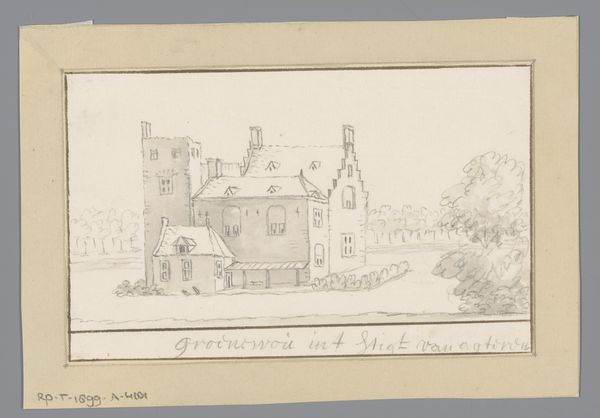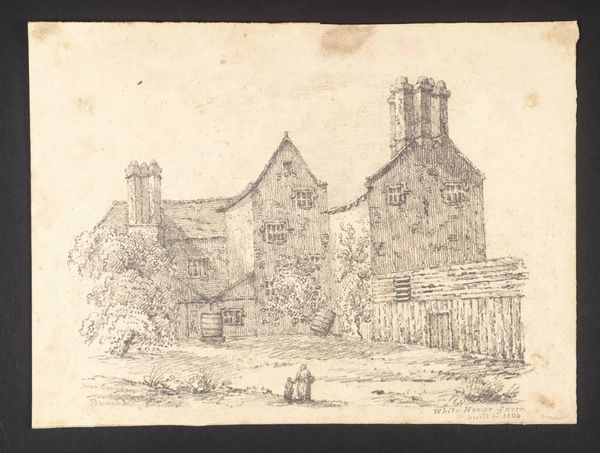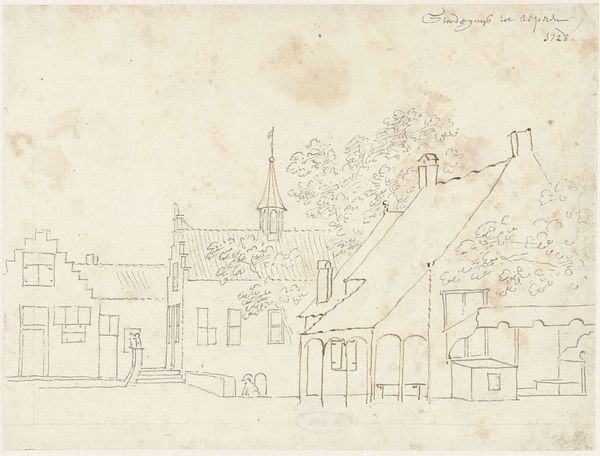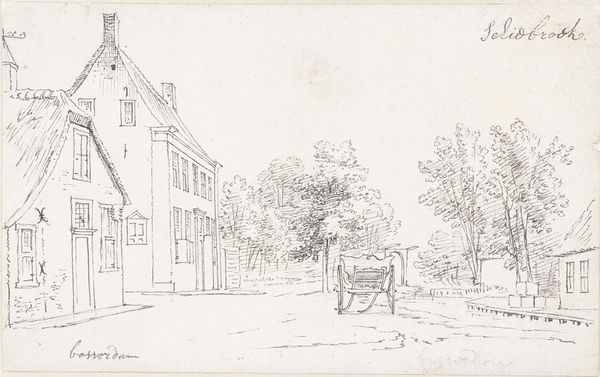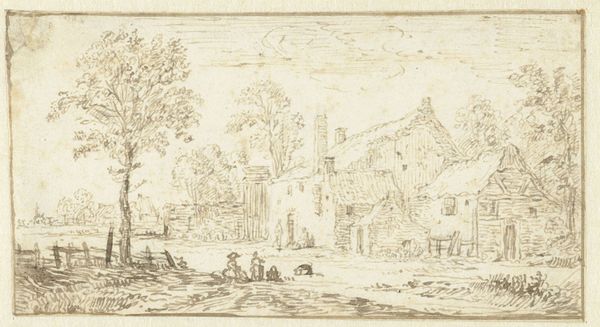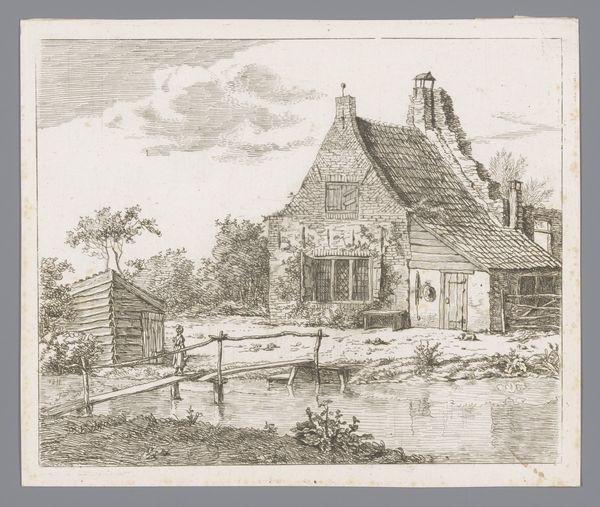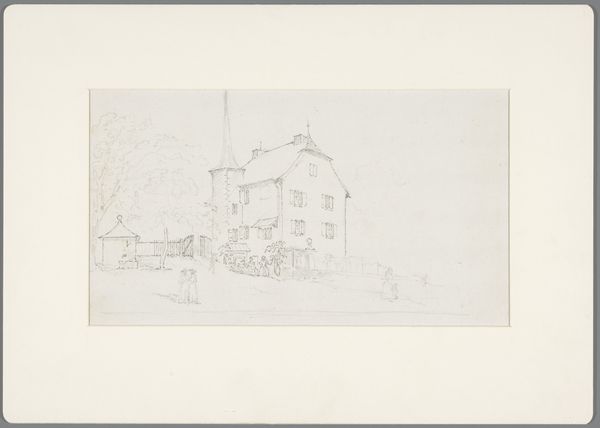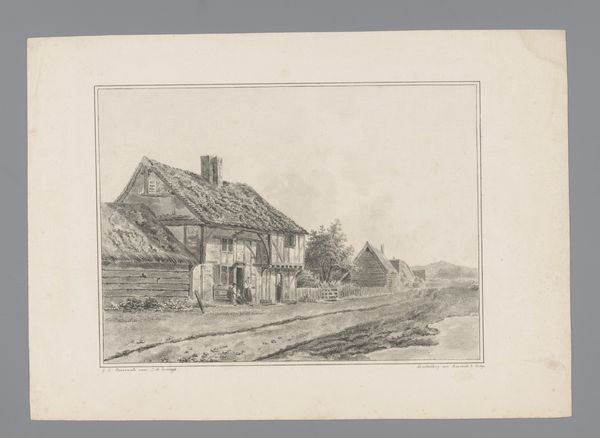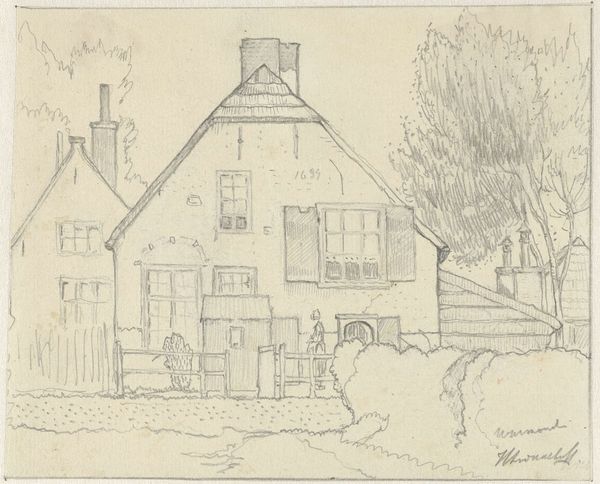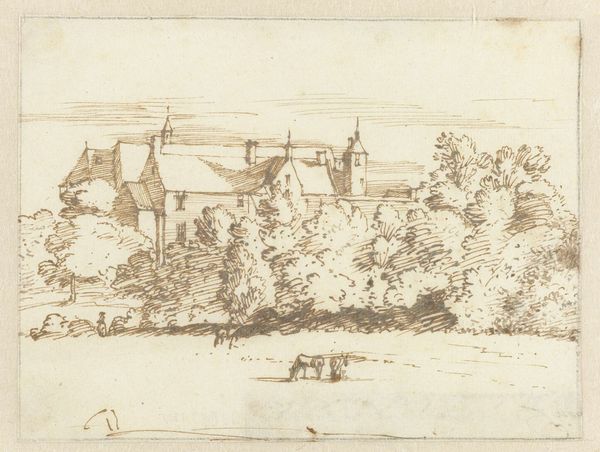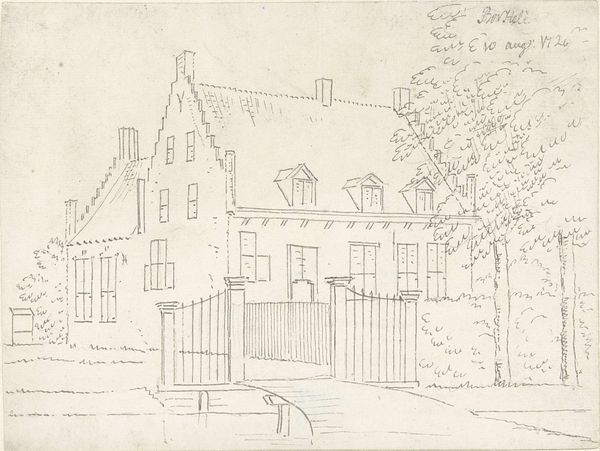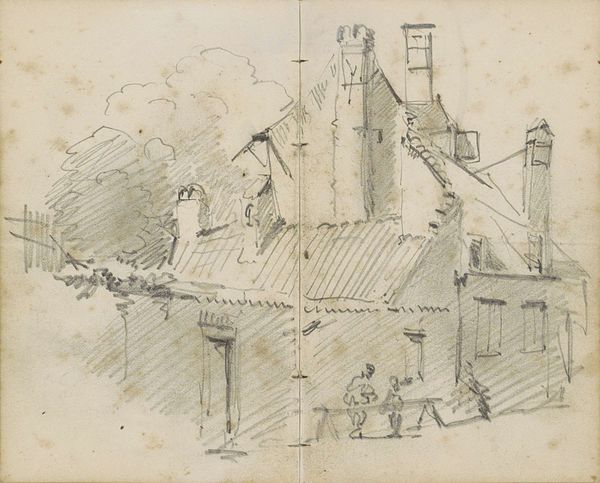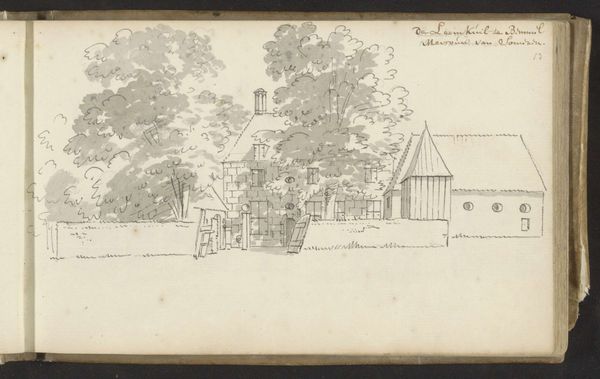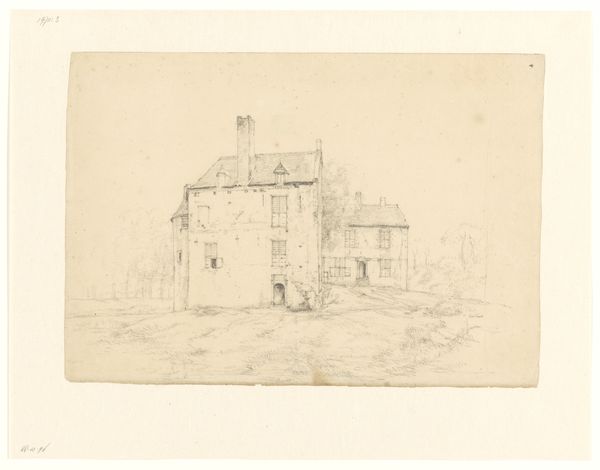
drawing, paper, pencil
#
drawing
#
dutch-golden-age
#
landscape
#
paper
#
pencil
#
line
#
cityscape
#
realism
Dimensions: height 139 mm, width 227 mm
Copyright: Rijks Museum: Open Domain
Editor: Here we have Jan Caspar Philips's "Gezicht op kasteel Batestein bij Harmelen," a pencil and ink drawing on paper, likely created sometime between 1710 and 1775. There's something very still and contemplative about it; what do you see in this piece, from your perspective? Curator: This drawing speaks volumes about the Dutch Golden Age beyond its aesthetic appeal. Consider the perspective – why this specific angle of Batestein Castle? Is it simply a landscape study, or does it tell us something about power, land ownership, and the visual representation of social status during a period of burgeoning capitalism? Think about who likely commissioned or bought such a piece. Editor: I hadn't really thought about the people *behind* the art, so to speak. That’s a really interesting point about the commissioning. Curator: Precisely. Whose stories are told and whose are omitted in such representations? And how does this idealized image contribute to a narrative of Dutch prosperity that might overshadow the lived realities of other segments of the population? Were there class divisions? Religious intolerance? Global colonial exploitation occurring during this time? Editor: So you're suggesting we look at it not just as a pretty picture, but as a historical document that reflects the values, and perhaps even the inequalities, of its time? Curator: Exactly! How can we use it as a starting point to delve into the complex social dynamics that underpinned the Dutch Golden Age? What does this specific depiction include or exclude, and what can we learn from those decisions? Editor: That's given me a lot to think about. I will now consider art in the context of political dynamics. Thank you! Curator: It was my pleasure.
Comments
No comments
Be the first to comment and join the conversation on the ultimate creative platform.
